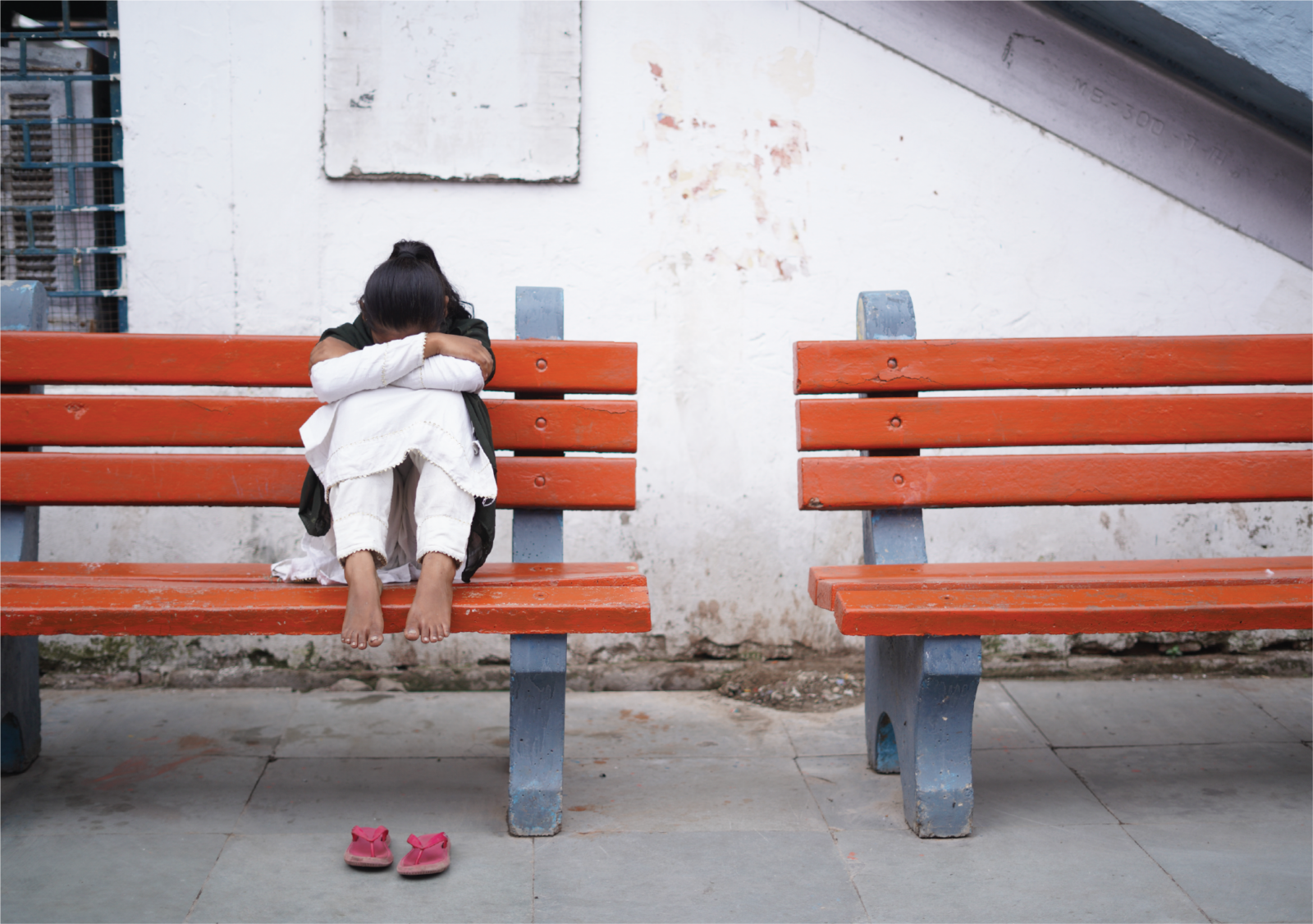An adult experiencing poverty and a child experiencing poverty are two distinctly different and sometimes even opposing experiences. While an adult may feel burdened by the pressures of making ends meet every waking hour, a child may be occupied playing with a discarded toy she found on the side of the pavement.
For an unseasoned eye, there is no distinction between adult poverty and child poverty, but one close look reveals how child poverty is a poverty of childhood. Robbed of good nutrition, health, water, education, and shelter, children face deep-entrenched deprivations in poverty—deprivations that are sure to leave lasting scars and serious implications.
With “Ending Poverty in All Its Forms Everywhere” as its foremost Sustainable Development Goal, UNICEF emphasizes child rights at the heart of global development, urging countries to address child poverty specifically and directly.
Railway Children India’s Approach to Ending Poverty
Railway Children India (RCI) works with the belief that the child and their family form one unit, and for meaningful change to take root, our support must reach this unit as a whole. Therefore, our interventions go beyond rescue and shelter. They are designed to break intergenerational cycles of poverty through consistent, ground-level support across multiple areas:
Nutrition-Dense Meals
Our nutrition and ration-kit distribution program addresses the unique health and economic needs of a family. For children suffering from low nutritional status or chronic illnesses, we provide ready-to-eat fortified khichdi as part of a child-focused recovery package. On the other hand, for families facing stressful situations such as displacement, job loss, or a family crisis, our ration kits bring immediate relief. They’re thoughtfully packed with essentials like rice, dal, atta (flour), cooking oil, and basic spices that are enough to help a family cook balanced meals for up to two months.
Proactive & Comprehensive Healthcare
We bring healthcare directly into underserved communities through targeted health camps. During an eye flu outbreak in Delhi, one of our first camps revealed underlying vision issues. This helped many children complaining of blurry vision receive free spectacles. With our dental hygiene camps, we distribute toothbrushes, toothpaste and easy-to-follow care guides while general check-up camps for adults cover tests for blood sugar, blood pressure, and vision.
Our health camps are held in close partnership with bodies like the Indian Medical Association (IMA) and District Legal Service Authority (DLSA) who also help issue Ayushman Bharat Health Account (ABHA) cards, giving families access to government health schemes.
Through these camps, children and adults receive urgent treatment, preventative screening, essential medicines, and seamless entry into India’s formal healthcare system.
Equal Education Opportunities
In vulnerable communities, education is often the first casualty of poverty. Faced with limited income, families are forced to make impossible choices, like sending a child to work instead of school, or educating a son while a daughter stays home to help with chores. For many, the long-term value of education is overshadowed by urgent survival needs.
At Railway Children India, we work to change this mindset and reality at the root. Our Child Activity Centres (CACs) are safe, inclusive spaces for non-formal learning and bridge schooling for children who have dropped out. We engage parents and adolescents through group meetings.
Not ceasing at mere motivation, our community outreach teams assist with school admissions, paperwork, and provide financial aid, school kits, as well.
Comforting Childcare Institutes & Prompt Reunification
Protecting children at transport terminals, such as railway stations and bus terminals, our team handles countless cases of children escaping neglect, abuse, or trafficking. Followed by prompt rescues, rehabilitating children in safe spaces is of utmost importance to prevent them from slipping into poverty and further risks. We ensure every protected child is immediately taken to a safe shelter, based on directions from the Child Welfare Committee (CWC). Depending on their needs, children are placed in short-term care homes, long-term shelters, or, wherever possible, are reunited with their families after proper assessment.
During their stay, children receive counselling, healthcare, and education support, ensuring their recovery begins the moment they are brought to safety.
Empowering Families with Livelihood Opportunities
Poverty can only be overcome through sustainable economic stability. Since COVID-19, Railway Children India has actively connected families, especially those who lost livelihoods to local earning opportunities.
A powerful example is our Sewing Machine initiative, where 31 women across six communities received machines and joined parent groups at Child Activity Centres. Through peer support, these groups empower participants to address challenges like sanitation and menstrual health. Sewing skills open avenues for income from tailoring, boosting self-reliance and household resilience.
Building a Poverty-Free Future, One Child, Family & Unit at a Time
Eradicating poverty is not a distant dream; it is targeted action every day. When we protect a child from hunger, help a mother start her small business, or enable a young boy to go back to school, we chip away at the injustice of poverty.






